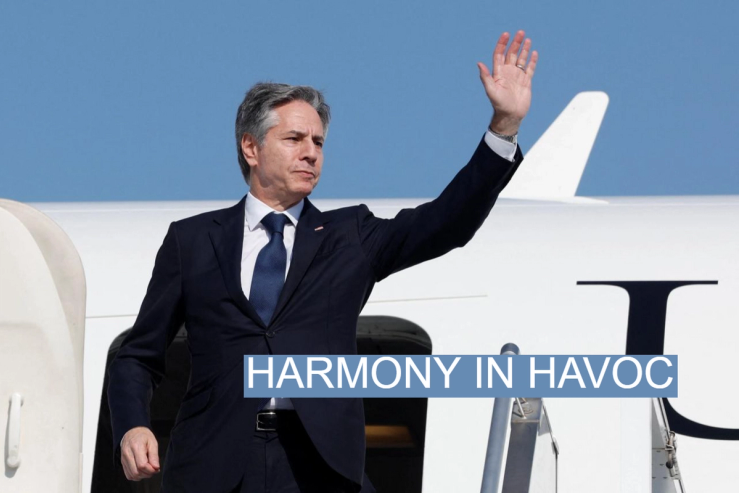The News
Arab countries are still open to normalizing diplomatic ties with Israel as long as Palestinian sovereignty is granted, the U.S. Secretary of State Antony Blinken said Tuesday, despite the ongoing bombardments in Gaza.
On a visit to Tel Aviv and with the Middle East on edge over the prospect of a regional war, Blinken said Israel has real opportunities to improve relations with its Arab neighbors if it allows Gazans to govern themselves and scales back its military activity in the territory.
“There’s a clear interest here in pursuing that,” Blinken said, while stressing that diplomatic ties are “not a substitute for or at the expense of a Palestinian state.”
Israel’s leaders have said they would potentially allow the internationally recognized Palestinian Authority to govern Gaza if it undertakes a “fundamental reform.”
SIGNALS
Many Arab citizens aren’t ready to embrace Israel
While Saudi Crown Prince Mohammed bin Salman has said his government is ready to take steps in normalizing relations with Israel, his citizens are not as keen. According to one poll, 96% of Saudis believe that the Arab world should cut all ties with Israel, while 40% now hold favorable views of Hamas, compared with just 10 percent before the war began. Citizens in countries that already have ties to Israel, such as Lebanon and Jordan, have expressed similar sentiments, with 84% of Jordanians rejecting any form of ties with Israel even before the war began, according to Middle East Monitor.
Arab neighbors don’t want to be heavily involved in a postwar Gaza
Arab leaders are rebuffing Israel’s pleas to help rebuild Gaza so long as the status quo is maintained, Axios reported. The president of the United Arab Emirates reportedly joked to Israeli Prime Minister Benjamin Netanyahu that he should “ask Zelenskyy for money,” after he asked the UAE to help pay unemployment stipends to Palestinians in the West Bank who were blocked from entering Israel to work. And any move by Saudi Arabia to normalize ties with Israel – which Riyadh had been eyeing prior to Oct. 7 – is now more complicated, Foreign Affairs reported, writing that “Saudi Arabia has neither the ability nor the desire to put boots on the ground in a postwar Gaza or to massively finance Gaza’s reconstruction.”
U.S. seen as key to Israel achieving peace with Palestine and normalizing Arab ties
Israel has failed to present the public with a “realistic and convincing” answer for how it can maintain peace with Palestinians after the war is over, conflict expert Nathan Thrall told the New Yorker, and the long debate over one state versus two states “obscures more than it illuminates” because nobody in the Middle East has a consensus on what such solutions would look like. The United States is the only authority that can solve the stalemate — and potentially help Israel normalize ties with the wider Arab world, Thrall argues — but that would require Washington to unequivocally recognize an independent Palestine, something both Democrats and Republicans have so far refused to do.



